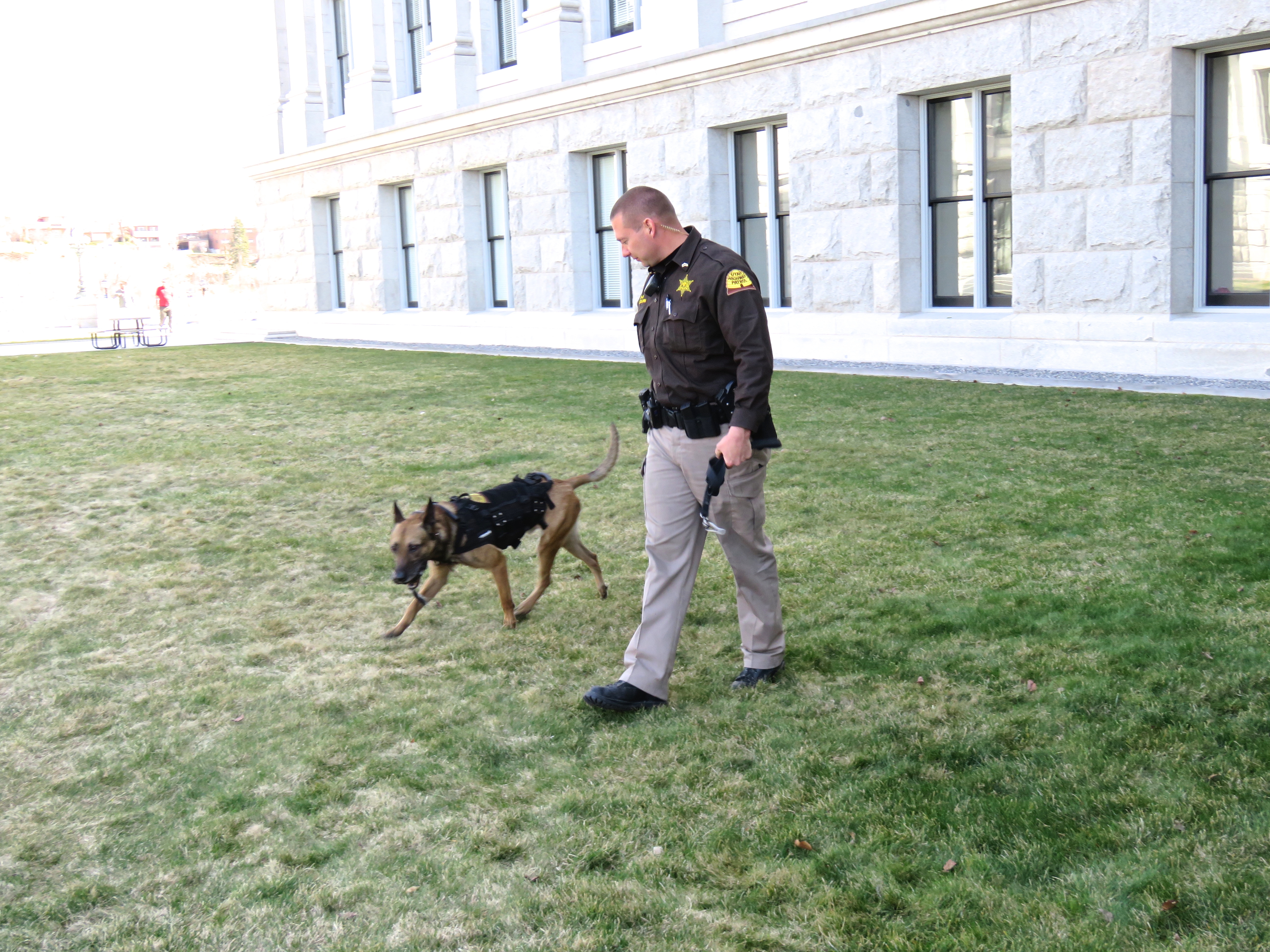
SB57, a bill that would raise the punishment for intentionally injuring or killing a police service dog, passed through the legislature on Wednesday, Feb. 21.
The bill would make killing a police animal a second-degree felony and injuring a policing animal a third-degree felony. Currently, it is a third-degree felony to both injure or kill a police animal.
Sen. Jani Iwamoto, D-Salt Lake, the bill’s sponsor, brought Lt. Chad Reyes and Sgt. Luis Lovoto, both of the Unified Police Department with her to explain the bill in a committee hearing.
Reyes explained the monetary value of police service animals. He said, including the price of a dog and the cost of training one, the value of one police dog is around $30,000–$50,000. He also said police dogs serve a range of invaluable purposes, from finding evidence and drugs, to locating missing children, and protecting their human partner as well as the public.
“My dog, Dingo, saved my life on multiple occasions, without a doubt,” Reyes said.
Reyes’ dog Dingo was killed in action. Reyes said it is impossible to explain the bond that he shared with his dog.
Iwamoto said valuing police animal lives is valuing human lives because of the great work these dogs do to protect and save their officers and the public. She said their value is not only monetary, but also emotional.
“There are those who value the lives of their animals because they’re part of their family,” Iwamoto said. “Law enforcement … view police animals as police officers.”
Lovato agreed that the value of these dogs can’t be calculated as a dollar figure. He said many things have changed in law enforcement over the past 150 years, with technology constantly advancing. But, he said, within all that time, no one can come up with something to replace the police dog.
“The value of these dogs and the things they can do is just really incredible,” Lovoto said.
According to Utah code, the penalty for a second-degree felony is one to 15 years in prison and up to a $10,000 fine. The penalty for a third-degree felony is zero to five years in prison and up to a $5,000 fine.
Marshall Thompson, director of the Utah Sentencing Commission, said he is not convinced that raising the felony charge would protect police dogs any more than they already are. He said the sentencing commission’s three main purposes are to reduce the risk to public safety, rehabilitate offenders and find restitution for victims. He said he doesn’t know how raising the sentence would provide benefit to these three purposes.
Reyes disagreed. He said he thinks raising the sentence would motivate someone to not go “one step further” from injuring an animal to killing one. He said with the sentence being zero to five years in prison, someone might injure or kill a police dog knowing they might get no jail time, but if the sentence were raised so prison time was inevitable, the same person might think twice.
SB57 met more opposition on the Senate floor.
Sen. Todd Weiler, R-Cedar City, said raising the penalty for killing a police dog to a second-degree felony would give the crime the same punishment as recklessly killing a human being. He also pointed out that assaulting another human being is currently only a class B misdemeanor.
It is a class A misdemeanor to taunt or torment a police dog to the point that its handler loses control of it, according to the bill text.

“It’s not fair to victims, to a human being, who dies or is seriously assaulted, to say that the dog’s life is worth more than a human’s life,” Weiler said. “That’s where I just have to draw the line.”
Similar opposition came up on the House floor, but despite it’s opposition, more legislators supported SB57. It was passed through both the Senate and House, and awaits the Governor’s approval.




